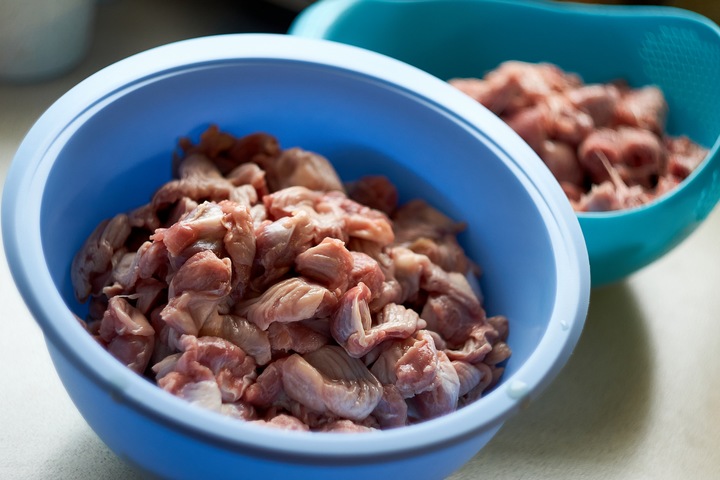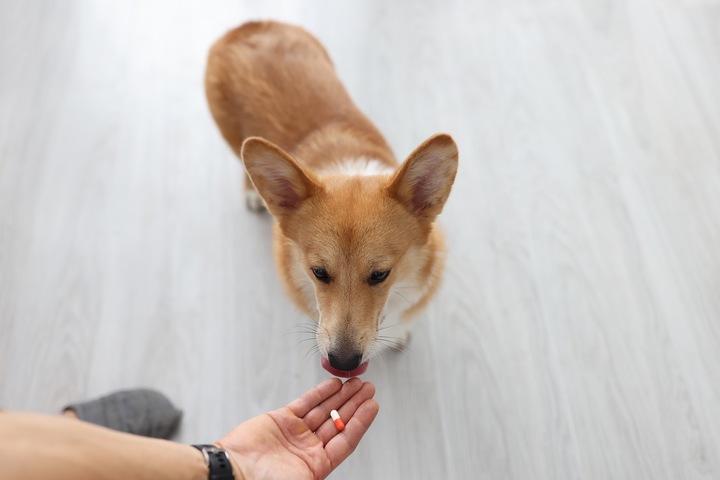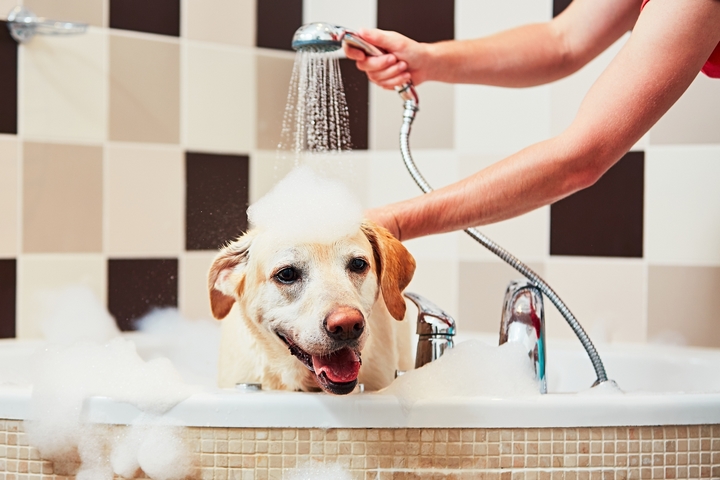Having a dog is a wonderful experience. Everyone seems to love dogs. Dogs love us. They are angels on earth. When you have a dog, you want what is best for him or her. One thing you may have thought about is ways to boost a dog’s immune system.
There are many things you can and should do to improve your dog’s health. You can combine certain methods. However, just like us, each dog is a different individual. They may have specific health issues. The best thing to do is speak to your vet and follow their advice to the letter.
Here are four different ways to boost a dog’s immune system:
1. Raw Dog Food

Raw dog food will help to boost a dog’s immune system. Of course, always speak to your vet to ensure it is ok for your dog. If your dog is in good health, then this is something that you could consider. A raw dog food diet will contain the right ingredients and calories for optimal health. Make sure to research any company you use and run it by your vet.
Raw dog food contains the right nutritional value without having preservatives and any added fillers. Many processed foods are not healthy in the long term, but luckily, this is not an issue with raw dog food. Dogs are carnivores, so they should have meat in their diet. Because they are not processed like other commercial dog foods, there are vital enzymes in raw dog food. Some of the benefits of feeding your raw dog food include healthier gums and teeth, healthier fur (or hair), allergies may be reduced, and they can appear more energetic. For general good health, ask about raw dog food.
2. Dog Supplements

Supplements are another way to boost a dog’s immune system. Again, never do anything without consulting your vet. Your dog may be on other medications, and even though something may be natural, there may be contraindications. Best to be safe and don’t check the Internet yourself and buy something. Consult your vet, ALWAYS.
One supplement you can probably get from your vet itself is probiotics. These contain good microorganisms that can benefit your dog’s digestive tract and also their immune system. Some of these can come in a powdered form. You can mix this into your dog’s food once a day. Depending on anything else going on, your vet may recommend that you can give it to them two times a day. There will be a certain measurement, such as half a teaspoon once or twice a day. Follow what your vet says diligently.
Another good supplement is fish oil. These contain omega-3 fatty acids that help fight inflammation and have other benefits, such as improving their immune system, reducing allergies and fighting off infection. Again, be sure to give the right amount. If you give more than you should, they could end up getting pancreatitis, so measure carefully.
3. Dog Hygiene
 Dogs do a lot of licking and sniffing, as it is in their nature. Keep your dog as clean as possible. Don’t rule out proper hygiene. Brush your dog, clean their paws and bathe them at regular intervals.
Dogs do a lot of licking and sniffing, as it is in their nature. Keep your dog as clean as possible. Don’t rule out proper hygiene. Brush your dog, clean their paws and bathe them at regular intervals.
Ask your vet for a rule of thumb when it comes to bathing your dog. Too often is not good. This could weaken their immune system. It’s all about getting the right balance. Also, brush your dog’s teeth using enzymatic toothpaste.
Speaking of cleanliness, this also includes toys and bowls. Try to keep these items clean as well. You can wash their toys with warm water, but make sure they dry. Moisture can be a breeding ground for bacteria. Don’t use dish soap to wash toys. Some of this can be toxic.
Just like us, dogs can also go through stressful periods. Stress can hurt your dog’s immune system. These are just a few ways to boost a dog’s immune system. Go for regular vet checks and always ask your vet for advice. They know your dog’s history and can offer the best advice.
4. Dog Exercises
 Your dog’s immune system is a very important part of its life. A boost in immune health can help to keep your dog healthier and fight off infections much quicker. Having an active dog that enjoys exercise and play can play a role in boosting its immune system.
Your dog’s immune system is a very important part of its life. A boost in immune health can help to keep your dog healthier and fight off infections much quicker. Having an active dog that enjoys exercise and play can play a role in boosting its immune system.
Exercise helps burn fat, and fat is not good for your dog. Excess fat is thought to weaken your dog’s immune system. An overweight dog may be more prone to health issues, which can be serious. Take your dog’s age and health into consideration and speak to your vet.
If there are no issues, then get your dog exercising and playing. That should be easy since they love it. If your dog has arthritis or a heart murmur, make it easier and ask the vet for appropriate activities.




